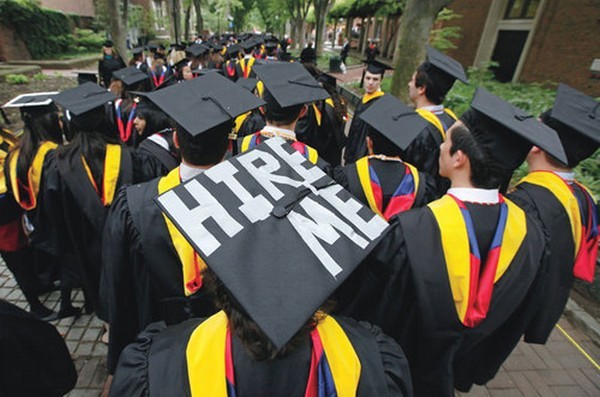President Barack Obama’s decision to effectively bail out U.S. college students by making it easier for them to avoid fully repaying their federal student loans has sparked rising anger in some quarters.
George Leef, director of research at the Pope Center for Higher Education Policy, says Obama’s student loan bailout plan is unfair because it forces all Americans to rescue a privileged coterie. Potential bailout beneficiaries constitute less than 30 percent of the U.S. population, he notes, and their college certificates (including degrees) grant them entry to jobs those lacking college credentials cannot get even if they’re capable of doing the work.
For instance, U.S. Army nurses returning from duty in Iraq are prohibited from training to become doctors or even physical therapists if they lack a college certificate. And the qualifying certificate need not be in the person’s chosen field. A degree in world communications, for instance, could qualify the Army nurse to train to become a doctor.
Inefficient, Expensive
Leef says the American college model has become so inefficient and expensive it makes no sense to bail it out. South Korea’s president has announced initiatives to move his country away from the U.S. college model, which he blames for “demographic decline” and burdening South Korea with enormous, unjustifiable expenses. He has promised to hire high school graduates in his Presidential administration.
Other nations rapidly moving away from the American model include Great Britain, whose Business Secretary is increasing spending on apprenticeship programs in accounting, law, and engineering.
“What President Obama is doing is a terrible idea,” Leef said. “We are thinking about a bailout for a model that is already massively underperforming. New York University’s Richard Arum and the University of Virginia’s Josipa Roksa have studied the U.S. college situation in their book Academically Adrift and found that more than a third of college seniors graduating have zero improvement in critical thinking skills, writing, analytical reasoning.”
Even more alarming, said Leef, is that the colleges focused on science “are failing dismally. Professor of Education Mitchell Chang at UCLA. notes that we lose ‘an alarming proportion’ of America’s science-oriented teens once they are in an American college. Notre Dame’s engineering dean, Peter Kilpatrick, has noted that sophomore and junior years in U.S. college are a ‘weak link’ in engineering. So what are we doing bailing out this model? Why throw more good money after bad?”
More Inequality
Rich Danker, director of economics at the American Principles Project in Washington, DC, said people “are right to be frustrated, but President Obama should be aware that granting this subset of Americans an easier federal student loan burden might well exacerbate the enormous wealth inequality persisting in America today.
“It is interesting that the statistic that says ’25 percent of Americans get 87 percent of the nation’s wealth’ roughly corresponds with the number of Americans who possess an American college certificate. Bailing this group out is not going to help efforts to reduce wealth inequality in the United States today, and in fact it may damage our economy by further entrenching this system and making it harder for non-college certificate holders to compete against college certificate holders,” Danker said.
Alexander Tabarrok, research director for the Independent Institute and author of the new book Launching the Innovation Renaissance, also notes the unfairness of the federal college program and President Obama’s move.
No Loans for Apprentices
“We are giving money to people who take on college loans, but what about the Americans who take on an apprenticeship to become an electrician? There aren’t college loans available for them. [This situation] continues to be a problem in the United States, this biasing to college and away from vocational programs. Germany and Switzerland do not do this, and have vocational training and programs.”
Leef said if President Obama wanted to be constructive he should have proposed an effort to get more Americans trained and educated for jobs the nation needs.
“If President Obama actually wanted to propose something that could help the horrible unemployment situation in this country—and all those homeless teenagers we [allegedly] see on the street—[he would work to] get them into public libraries studying to take the LSAT exam or whatnot. Then he would have pushed to end this uniquely American college model and its regulatory and political stranglehold over numerous American professions, technical training schools, and the U.S. government,” Leef said.
Supreme Court Clarification
Leef says a 1970 Supreme Court decision (Griggs v. Duke Power) has been wrongly viewed by many as virtually forcing businesses to hire only college graduates for certain jobs. The idea behind the ruling was, paradoxically, to ensure ability, not certificates, determined hiring practices, but certificates came to be viewed as evidence of ability.
As a result, “There is truly, absolutely no rational reason anymore for the U.S. government to be funding, let alone bailing out, this college model,” he said. “In the end, the real question is whether this American college model continues into the next century. I doubt it will everywhere, but perhaps it will here. Bailing it out does us no good.”
Thomas Cheplick ([email protected]) writes from Cambridge, Massachusetts.





